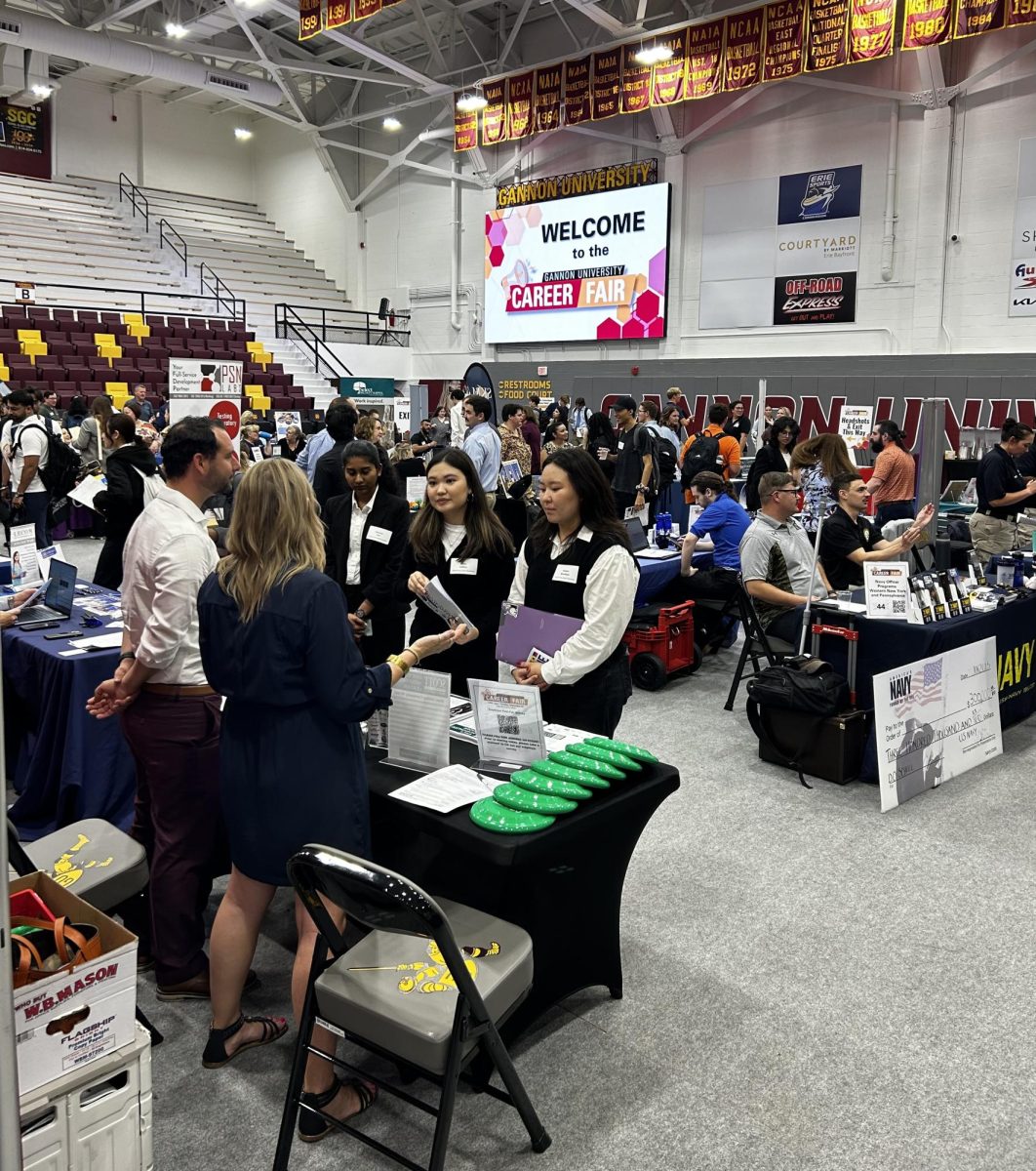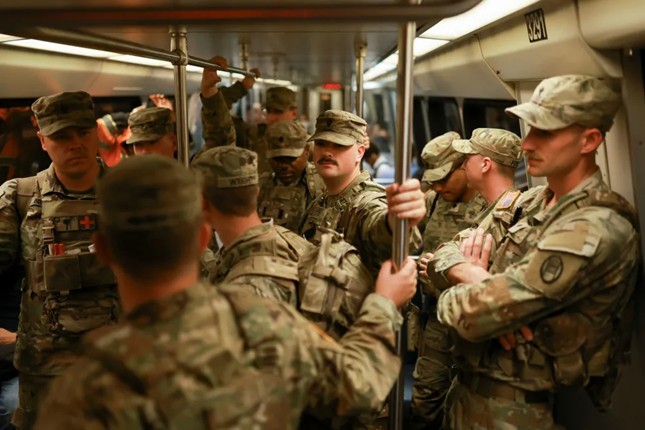Gannon University’s women’s studies program and Center for Social Concerns hosted a talk in conjunction with the academic theme for climate change Tuesday.
The talk, titled “You, Me and Plastic Debris,” was given by Kristal Ambrose, a senior interdisciplinary major. Originally from the Bahamas, Ambrose spent the last decade studying marine biology in her home country.
Before coming to Gannon, she traveled through the Atlantic Ocean doing research with the nonprofit organization Five Gyres in a research team of 12 people.
“All there was was ocean, clouds and trash,” Ambrose said. She said seeing the plastic and debris in the oceans opened her eyes to her own plastic consumption.
“All I could think was ‘humans are disgusting,’” Ambrose said. “But then I said, ‘Kristal, you better pinch yourself, because you’re a human too.’”
When Ambrose came home from her research trip, she said she was on a mission to start her own nonprofit dedicated to finding solutions for plastic consumption.
Her nonprofit company, Bahamas Plastic Movement, works to build a community of publicity and activism. Ambrose said she hopes to get more people informed to find a solution to the amount of plastic that is thrown away.
“Plastic is a blessing and a curse,” Ambrose said. The convenience of disposable consumption drives the plastics industry, but its disposable design has serious consequences.
Every five minutes, two million plastic bottles are used and thrown out, Ambrose said. Consumers use 1.4 million plastic grocery bags every minute, and much of this waste ends up in landfills and oceans.
The ocean is filled with eight million tons of plastic each year, Ambrose stated, but it never totally biodegrades. She said the chemicals and oil that are used to make plastic can only be broken down with light energy through photo-degradation.
The original items of plastic waste are worn away into smaller pieces, or micro plastics and microbeads, Ambrose said. People also introduce microbeads into the water supply by using products with microbeads, small beads of plastic used to exfoliate the skin.
The concentration of microbeads in the oceans are so high they outnumber plankton 1:8, and 100,000 other marine animals are affected by them.
Once plastics are downsized, they absorb chemicals in the ocean and are theorized to pose a threat to wildlife that consume them.
Ambrose said fish and sea birds that eat plastic debris can starve to death from consuming them. Plastics create a false sense of being full, and the animals are not getting any nutritional value.
The best way to help keep plastics out of the oceans are the six R’s. Ambrose added “redesign, rethink and refuse” to the original three.
“Do you really need that straw?” Ambrose prompted. “Or do you really need a grocery bag for that one Snickers that’s wrapped in plastic already?”
Shefali Amin, a senior biology and pre-med major, said she attended the talk as part of her resolution to be more mindful of the environment.
“I really liked the talk and I liked that Kristal is a young woman leader,” Amin said.
“You always hear about how there’s all this trash in general, but it’s more eye-opening to talk about the ocean.
“The climate change talk last week didn’t involve plastic itself. I felt like there was nothing you could do to help on a personal level.
“Talking about plastics at home is something you can help out with yourself.”
KELSEY GHERING
[email protected]












